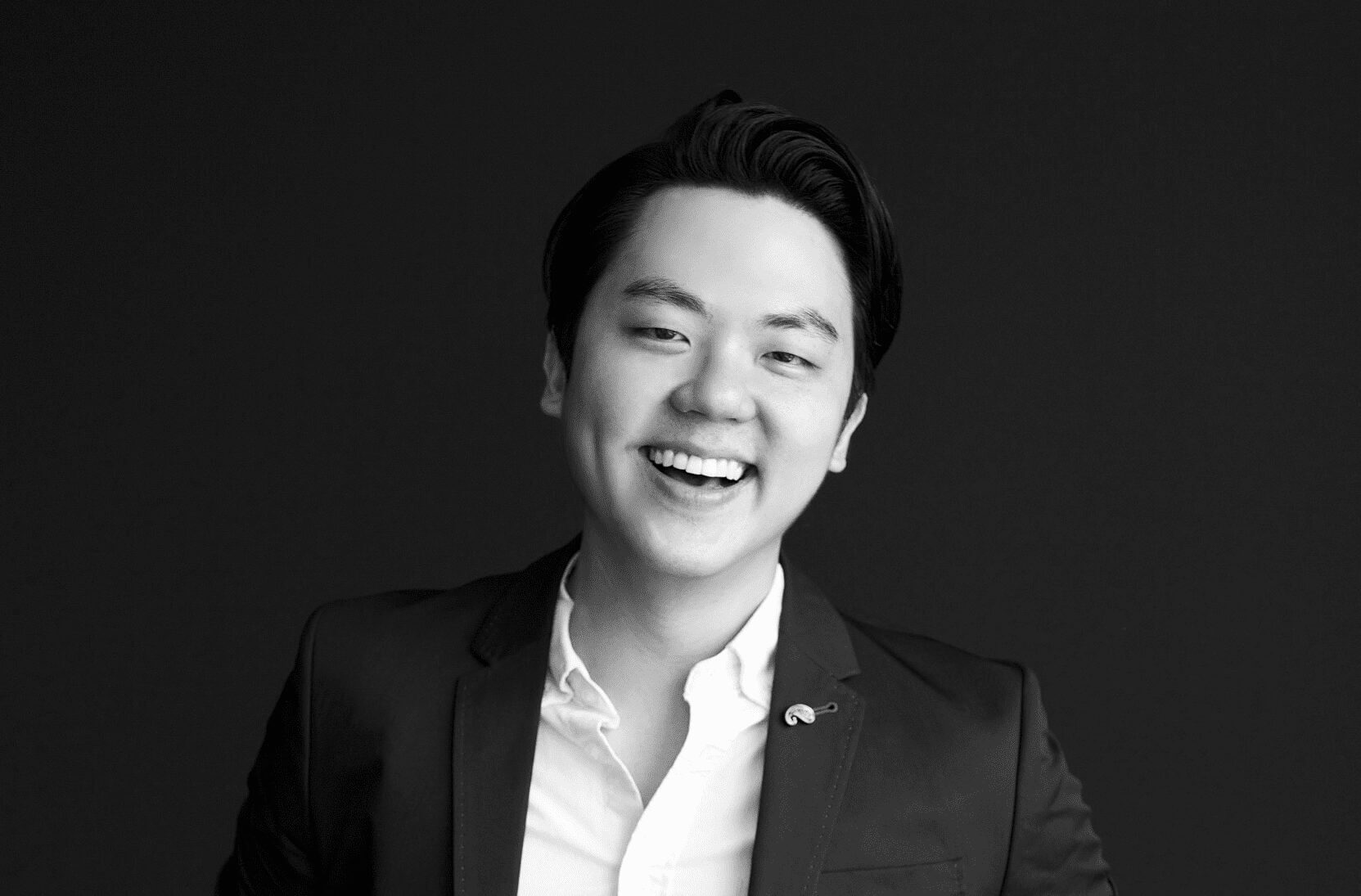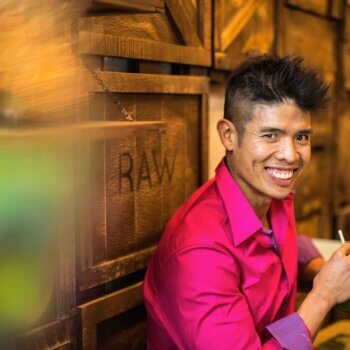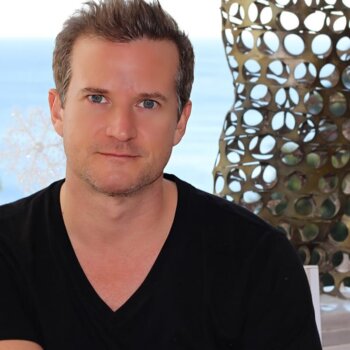One of Asia’s most inspiring and successful young entrepreneurs, Joel Neoh is passionate about democratizing technology to enhance the lives of millions of consumers across Asia. In 2015, he founded KFit, a fitness-sharing platform which seamlessly connects consumers and fitness businesses in key cities across Asia Pacific. KFit offers consumers a simple monthly membership that opens the doors to a wide variety of classes and activities.
A Kuala Lumpur native, Joel has a high profile as the founder of GroupsMore, which became Groupon Malaysia in 2010, and a charismatic leader within Groupon Asia Pacific. In senior VP roles and as Head of Groupon Asia Pacific from 2013 to 2015, Joel was instrumental in establishing the high-growth business model that propelled the organization into a multibillion-dollar business with thousands of employees across 12 countries. Joel believes in the importance of creating a world-class work culture to inspire employees. Under his leadership, Groupon Malaysia was named on the 2013 WorldBlu Most Democratic Workplaces list.
Joel started his first company at age 20 while studying engineering at Monash University, growing it into a million-dollar business. He was the inaugural winner of The Firm, Malaysia’s version of The Apprentice, in 2007, when he was the youngest contestant at age 23. Joel has co-founded several successful companies, including Says.com, which merged with Catcha Media in 2013, and invested in a string of technology venture capital funds and start-ups across Asia.
In 2012, Joel won the Ernst & Young Entrepreneur of the Year Award for the Emerging Entrepreneur category in Malaysia. In 2013, he was named one of Asia’s Top 10 entrepreneurs, as well as Young Global Leader, by World Economic Forum and was also honoured to receive the Malaysian Service Medal. In 2014, Joel received a Creative Pioneer Award and was included on Malaysia Business’s 30 Successful Malaysian’s Under 40 list.
Joel sits on the board of the publicly listed REV Asia, which he co-founded in 2013, and is an advisory board member of Monash School of Business and AIESEC, the world’s largest student organization. He completed his studies in Monash and Harvard Business School and has lived in a number of Asia Pacific cities, including Tokyo, Seoul, Taipei, Sydney and Singapore.
Joel is an avid sportsman. As a student, he competed in basketball, volleyball, and handball and was a national representative in squash and rock climbing.
In your own words what is Kfit?
KFit enables you to discover and reserve fitness activities in your city – online or from your mobile phone. Whether a treadmill run in the gym, intensive weight lifting or yoga and pilates; KFit connects you to a wide variety of activities and workouts, at an affordable price point. With world-class customer service and a fast growing community of users, KFit is the easiest way for gyms, fitness studios, and health wellness businesses in Asia Pacific to monetize their extra space and showcase it to a relevant audience of thousands. KFit makes living an active lifestyle easy, affordable, social and fun for everyone – contributing to healthier cities across Asia Pacific.
KFit was founded in April 2015 with the strong backing of venture capitalists and angel investors. An emerging leader in the new sharing economy, KFit is currently rapidly expanding to more than 10 cities in eight countries under an experienced management team led by high-profile entrepreneur Joel Neoh.
How did you come up with the idea of Kfit?
KFit brings my love of sports together with my belief that we can enhance the lives of consumers in Asia by democratizing technology. I was inspired to start the company when I saw the great gyms and sports facilities I use in various Asia Pacific cities struggling to fill their classes and keep their bookings high. At the same time, I was hearing so many people saying that they wanted to live a healthier and more active life.
Could you walk us through the process of starting up KFit?
KFit has assembled an experienced management team with expertise in the IT and fitness industries. Besides me (Joel Neoh), the KFit founders include venture capitalists and angel investors such as 500 Startups, SXE Ventures and Founders Global; Daniel Shin, founder and CEO of Ticket Monster Inc.; and Danny Yeung, former CEO of Groupon Hong Kong.
As with my previous startups, the execution process for KFit was rapid; the service was launched in May 2015 and already has more than 1,000 partners in 6 cities across Asia Pacific. The execution strategy changed often, depending on what was required. At first, we needed to get as many gyms as possible. So that’s what we did. Once we had users, some said that the gyms they wanted were not on the list, so we shifted to start filling the gaps.
In July 2015, global venture capitalist Sequoia Capital led the first funding round of US$3.25M for KFit. In February 2015, KFit received the series A investment round of US$ 12 million led by Venturra Capital, with participation from SIG and Axiata Digital Innovation Fund.
KFit has launched in Seoul, Taipei, Manila, Auckland and Perth, expanding its reach to 10 cities across the Asia Pacific region. The number of gyms and studios has surged five times to 5,000, with most of the notable gyms and fitness studios on board in each city. As of end of 2015, KFit has expanded its network of fitness studios and gyms in the region to about 5,000 partners.
Did you encounter any particular difficulties during startup?
The basics of what our subscribers and partners want is the same in every market. Our subscribers are digitally connected people who want to live an active lifestyle on their own terms. They want convenience and cost-competitiveness, and a wide variety of local fitness options to choose from. Our fitness providers want the chance to connect with new customers, build their brands and fill otherwise-open class slots.
Even so, we see every city as unique. We have to be local in every city because we are dealing with a lot of different languages and cultures, and varied regulatory and business environments. Plus, every city has its favourite sports and pastimes.
Here in Asia we are lucky that there is a lot of good sports infrastructure already here – although much of it is underutilized. We estimate that only four percent of Asia’s urban population has any sort of fitness club membership. These regular exercisers will use KFit to enhance their fitness regime, but our platform also appeals to the 96% who don’t yet regularly use a fitness club. These new fitness consumers love KFit because it is a local and hassle-free fitness option. It lets you enjoy a wide variety of classes and activities, with complete flexibility as to where and when you exercise. You put together your own ideal fitness regime, mixing up your fitness activities so you never get bored.
How have you been developing Kfit since start-up?
KFit is looking to expand in the region and invest in the technology, operations and marketing to further solidify its leading position in the Asia Pacific region. The expansion will go beyond just fitness, with upcoming new categories, activities, and pricing models to be added this year.
What kind of feedback did you get for Kfit so far?
Feedback from customers shows that KFit is attracting both fitness enthusiasts looking to add variety to spice up their keep-fit regime, as well as new fitness consumers who want a local and hassle-free fitness option that does not tie them into a single gym or studio membership. In the last six months alone, KFit members have reserved over 250,000 reservations. A reservation is made every minute and customer ratings of KFit activities are at record high of 4.5/5 based on 10,000 reviews and 1.5 million ratings.
We have rolled out innovative features on our platform such as hyper-local discovery, deep personalization, advanced implementation of iOS Spotlight search, that are well received among our users. New features (see call-out box) have resulted in a 4.4 rating across Google Play and App Store.
With the continuous support from users, KFit is currently rapidly expanding to more than 10 cities in eight countries in the Asia Pacific region, including Seoul, Taipei, Manila, Auckland and Perth in the recent six months.
What is your strategy against your competition?
It’s good to have competition as it will help improve the whole fitness industry and raise awareness of health and fitness in Asia. KFit has experienced fast growth regionally and has expanded to eight countries.
We have an experienced team with proven track record of success in building and scaling regional ventures, and a network of investors spanning across Asia Pacific, Europe and China who lend their support, guidance and expertise.
Why did you decide to become an entrepreneur?
What is great about entrepreneurship is that it rewards curiosity. Starting up companies has always been something I really enjoy. I’ve started up many companies before Groupon. Running a big organization and starting up a company from scratch are two different things. Starting something up gives me that ability to create. I love that process of creation. I’m not big into just managing.
I think it was all timing. I’ve been with Groupon for about 5 years. I was itching to start and create something again. I’ve been looking out for different ideas for 2 years and this idea for KFit made sense since I’m very big into fitness as well.
In your opinion, what are the keys to entrepreneurial success?
The way I see life is that you go through many phases. Life is really short so you want to try and do as many things as you can. That never-say-never spirit is illustrated throughout my schooling days and lives on with me to this day. I did a lot of different things but I always try and do my best in it.
Back then in the classroom there were people who worked really hard and they study really long hours. I wouldn’t categorise myself within that group. Instead, I was always thinking about how to make things work smarter. Although I don’t do 12 hours, but I spend more time thinking about how to simplify things and create a structure to understand the problem better or answer the right questions quicker.
The problem with Internet space is that if you think small and spend the amount of time building something small compared to someone building something big, eventually you’ll get ousted of the competition. Someone bigger will find it easier to buy out the company or to basically compete with you. A lot of what the successful businesses have in common is that they have a big vision and they’re ambitious and they go for the big win. There’s no place for the in-between or the small fries.
What is your opinion on Asian entrepreneurship vs Western entrepreneurship?
I don’t see huge differences between Asian entrepreneurship and western entrepreneurship. Entrepreneurship is a maze booby-trapped with many downfalls and monetary snares. What’s most important is not having the fear of failure. Most people have great ideas but they don’t work on it because of that fear.
Any parting words of wisdom for entrepreneurs out there from your personal experience?
You only live one life; why not try things out, especially when you’re young. Go all out then when you look back, at least you can say you went for what you want.
Connect






























